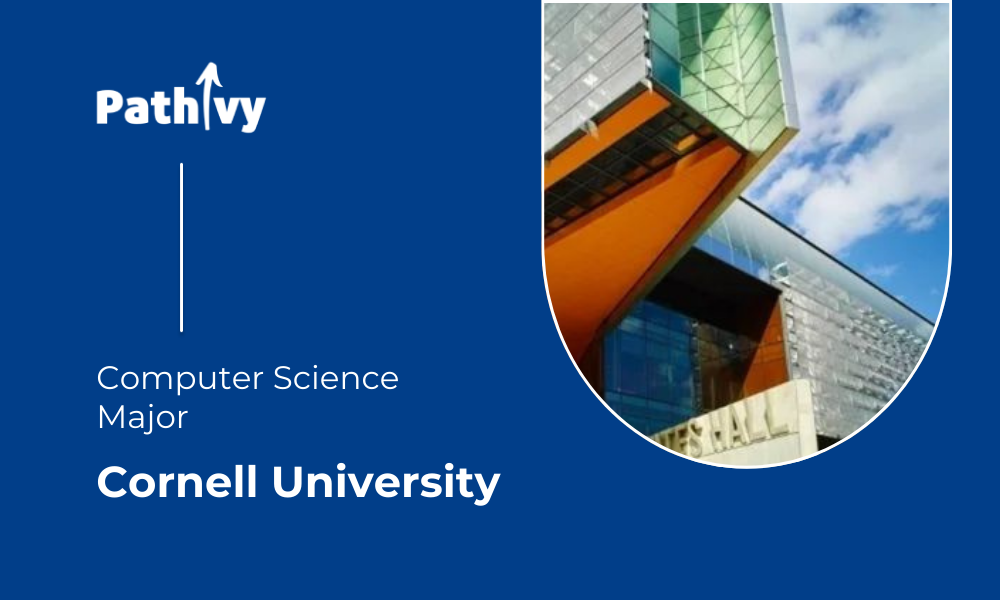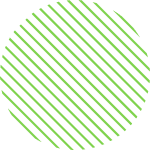Major Introduction & Statistics
Located in the Finger Lakes Region of upstate New York, Cornell University is home to nearly 15,000 undergraduate students. Offering an education tailored to each students’ interests, Cornell has nearly 80 different majors, with an accompanying 120 minors. Today, we will delve into the details of one the fastest growing majors in the country—Computer Science.
The Computer Science program at Cornell, which is now a top-5 program nationwide, was one of the first of its kind when it was established in 1965. Since then, it has continued to grow at a steady pace, now bolstering over 1,500 undergraduate students and a strong faculty.
The Computer Science department is located on campus within Bill & Melinda Gates Hall, a relatively new building that uniquely integrates technology and architecture visible through its unique open spaces, classrooms, labs, and offices.

Consistent with the growth of the department, there has been continued investment in the future of Computer Science at Cornell. Just this past year, Cornell announced a new $100 Million Dollar Computer Science building, with expected completion in 2025.

Major Admission
So how do you become a Computer Science major at Cornell?
Although the program is technically affiliated with the Cornell Ann S. Bowers College of Computing and Information Science, the Computer Science major itself is available in both the College of Engineering and the College of Arts & Sciences.
The major requirements within each of the two schools are identical; it is the distribution requirements outside the major that differ. While the College of Engineering focuses on a comprehensive STEM education requiring courses in Chemistry and Physics, the Arts & Sciences pathway requires the study of a foreign language and other humanities-based requirements.
In regards to affiliating with the major, the process is the same whether you are in the College of Arts & Sciences, or Engineering. It is not capacity constrained, meaning that as long as you are part of one of these two schools and meet the affiliation requirements, you can be a Computer Science major.
Generally, students begin the affiliation process in either their third or fourth semester. There are 3 criteria for admission into the major:
- A grade of at least a C in all completed CS and math courses
- A GPA of 2.5 or higher in CS 2110/2112, and CS 2800/2802
- A GPA of 2.5 or higher in Math 1120/1220/1920, and CS 2800/2802
Once you have met these three requirements, you are free to affiliate with the Computer Science major. Before affiliation, it is best to understand what exactly the major entails and how you should expect to formulate your schedule for the rest of your time at Cornell.
Major Requirements
The Computer Science major at Cornell is a total of roughly 18 courses, including introductory mathematics and Computer Science courses. The standard requirements are as follows:
- A calculus sequence of three courses: Math 1110/1120/2210 or Math 1910/1920/2940
- Two introductory programming courses: CS 1110 and CS 2110, or equivalents (CS 1112, CS 2112)
- Five major core requirement courses: CS 2800/3110/3410/4410/4820
- Three 3000+ level technical electives
- Three 4000+ Computer Science specific electives
- Three 3000+ level courses related to an External Specialization outside of CS (these courses can be used to fulfill a minor in another discipline)
- One CS practicum or project course
- One probability and statistics course
Planning out each of these courses may seem daunting, but with some adequate planning, it is entirely doable to complete during 4-years at Cornell. It is also not uncommon for CS majors to add one or more minors, or even a double major.
Here is the official major page with more information.
My Experience with the Computer Science Major
As a freshman at Cornell, I have taken two important introductory courses for the Computer Science major. The first is CS 1110 Introduction to Computing Using Python, which has the following course description:
- Programming and problem solving using Python. Emphasizes principles of software development, style, and testing. Topics include procedures and functions, iteration, recursion, arrays and vectors, strings, an operational model of procedure and function calls, algorithms, exceptions, object-oriented programming. Weekly labs provide guided practice on the computer, with staff present to help.
CS 1110 is one of the largest introductory courses at Cornell, with over 800 students, but is also one of the best-taught courses in the entire university. I came into this class without any prior programming experience, but that was not an issue, as both the professor (the esteemed Walker White) and teaching assistants made sure that each and every student felt comfortable with the material throughout the course.
This is one of the most notable elements of the Computer Science program at Cornell. Although there are plenty of students with prior experience, which can sometimes be daunting, the faculty assumes that everyone has no experience, which levels the playing field by reinforcing the necessary foundation to all students.
In addition to that, another one of the perks for this particular class is the large course staff, with over 100 course consultants and teaching assistants. Because of this, any time that I had questions or needed assistance, there was someone offering office hours willing to provide help.
This past semester, I took CS 2110 Object-Oriented Programming & Data Structures, the next class in the Computer Science sequence with the following course description:
- Intermediate programming in a high-level language and introduction to computer science. Topics include object-oriented programming (classes, objects, subclasses, types), graphical user interfaces, algorithm analysis (asymptotic complexity, big "O" notation), recursion, testing, program correctness (loop invariants), searching/sorting, data structures (lists, trees, stacks, queues, heaps, search trees, hash tables, graphs), graph algorithms. Java is the principal programming language.
Similar to CS 1110, this was also a large introductory course, but also offered great support and an expansive course staff. The assignments and exams were slightly more challenging than the first semester in CS 1110, but the jump up in content was not that significant, making it manageable for someone with no Computer Science experience prior to arriving at Cornell.
Additionally, this semester CS 2110 was taught by the famous David Gries who, although retiring after the conclusion of this semester, was particularly insightful and always kept lectures interesting.
Next semester, I will be taking the next two classes in the Computer Science curriculum, CS 2800 Discrete Structures, and CS 31110 Data Structures & Functional Programming.
Two of the most notable takeaways I have from my experience as a Computer Science major at Cornell so far are: first and foremost, the availability of extracurricular activities tailored to the Computer Science industry. Whether you want to join a Cornell Project Team to develop an autonomous car, or conduct undergraduate research with a Computer Science professor, Cornell offers the chance to supplement your education with valuable experiences outside the classroom.
Secondly, while the CS courses have been extremely interesting and foundational to the major, the way in which Cornell allows for students to take interdisciplinary classes outside the major is what truly makes it such a complete education. Personally, as a member of the College of Arts & Sciences, I have had the opportunity to take classes in a wide variety of disciplines, including Psychology, Spanish, English, and Math. These classes paired with the CS classes created a schedule that was well-rounded, interesting, and not too rigorous.
To get the most out of Cornell, Computer Science students should take advantage of the vast resources available both within the major, and outside of the major. If you do that, you will certainly have an unforgettable experience studying one of the most fascinating, and in-demand subjects. Good luck!
Written by Owen Rector, PathIvy Cornell University Ambassador
.png?width=175&height=73&name=ORIGINAL%20LOGO%20Blue%20and%20Green%20(1).png)
.png?width=50&name=author-image%20(2).png)


